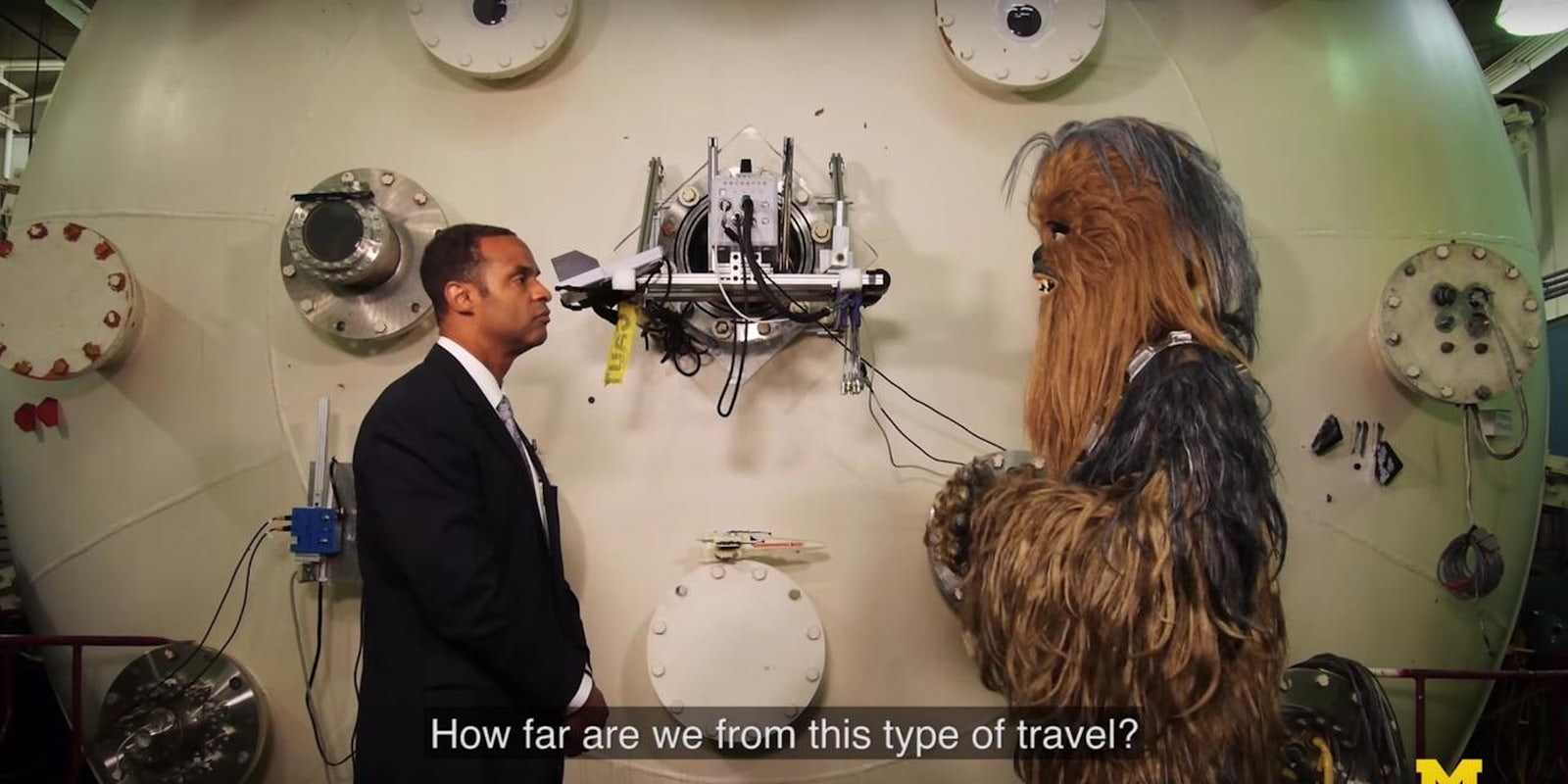The University of Michigan’s College of Engineering recently invited Chewbacca to come and talk to some of their professors about how the technology in Star Wars is or isn’t light years ahead of what we have here on Earth.
First there’s the pressing question of when we’re going to be able to send holographic messages through droids. Unfortunately, hologram technology isn’t there yet—we can’t digitally record holograms. But they do make a holographic R2D2.
https://www.youtube.com/watch?v=rwr5jTcz2w4
Similarly, the droids in Star Wars are also beyond our capabilities. Robotics is closer to Star Wars droids than hologram technology, but things like locomotion are a challenge.
https://www.youtube.com/watch?v=h82VmoZ_Y_8
Propulsion is a huge issue with space travel. And while Star Wars seems to be the “land of infinite fuel,” we’re not that close behind to developing some very powerful thrusters ourselves. The power needed to propel things like TIE fighters, however, is far greater than anything we can imagine—at least for now.
https://www.youtube.com/watch?v=apqdoKwZnGM
But, theoretically, we could freeze someone in carbonite. Super-cooling water keeps liquid below its freezing point, causing it to freeze solid almost instantly when perturbed the right way. In theory, one could submerge a person in this super-cooled water and then give the solution enough energy to freeze them like they did with Han Solo in The Empire Strikes Back.
https://www.youtube.com/watch?v=PXYXZrmf_CI
And now for what you’re all really waiting for: lightsabers. When are we getting them, for real? Probably never, at least as we can conceive of them. Lightsabers defy the laws of physics since the light is contained in some finite way, and when two lightsabers cross, they don’t go through each other.
https://www.youtube.com/watch?v=RSV0GWikeyE
Bummer, right? But at least the other technologies are more tenable. We can’t wait until BB-8 and R2D2 are real.
H/T Uproxx | Screengrab via Michigan Engineering/YouTube


